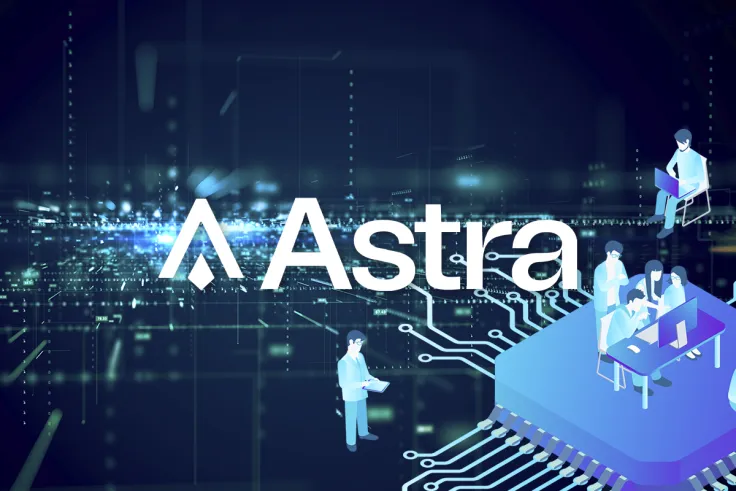
The rise of blockchain-based platforms and virtual currencies has taught us a valuable lesson: humans love to maintain control—over their assets, everyday lives, as well as their sustenance—and they might go to great lengths to prevent others from taking control of their possessions. This type of behavior is deeply ingrained in human nature.
In addition to these factors, there’s currently an ongoing shift in consumer behavior that has been accelerated by the COVID-19 outbreak, which resulted in a massive failure of the global capital markets. As most would recall, the financial markets crashed in an unprecedented manner when awareness about the Coronavirus became widespread in late February 2020. Investors and the average person were seeking reliable ways to save their assets from crippling inflation.
Digital assets such as Bitcoin (BTC), Ethereum (ETH), and Solana (SOL) have experienced an exponential increase in their price during 2021. Although new crypto-asset classes such as non-fungible tokens or NFTs are also becoming increasingly popular, there are important regulatory challenges to address as well.
And as we continue to experience a dramatic change in how we perform transactions and use money, there’s also been an increase in new crypto-focused initiatives deployed on blockchain or distributed ledger tech (DLT) networks.
Decentralized finance (DeFi) projects, which aim to fully decentralize the manner in which we transact and carry out other business activities, have also emerged as a high-potential financial services sector. According to DeFi Prime data, there are around 243 DeFi-related initiatives currently listed. Notably, Ethereum maintains the most significant share of the market, with 220 DeFi projects developed on top of the leading smart contract platform.
With this steady rise in crypto projects, there is one key drawback of digital currencies and DeFi: the lack of legal certainty and adequate measures to ensure consumer protection. Crypto-asset ownership offers financial independence and wellbeing, however, it also comes with serious (potential) risks.
Crypto Regulations, Sanctions, and Other Compliance Measures
Legacy systems have maintained a firm grip on how individual consumers and businesses perform monetary transactions. Different legal systems and regulatory frameworks are currently overseeing global currency exchange, loans for businesses, insurance services, and other business activities. These laws have been supported by jurisdictional requirements, which makes them confined and limited to a single physical territory.
However, cryptocurrencies are borderless and permissionless, which means consumers can seamlessly engage in cross-border transactions, without relying on intermediaries to finalize transactions. Virtual currencies provide an ecosystem where users don’t have to adhere to strict regulations, sanctions, and other measures that could result in losing access to funds.
With DeFi’s rising popularity and adoption comes a corresponding increase in malicious hackers, damaging exploits, and various other types of illicit activities. This is partly why regulatory authorities are so keen to regulate this nascent sector. Regulatory organizations and law enforcement agencies have been working to take disciplinary action against projects that are engaging in financial crimes.
Providing a Robust “Peace of Mind” Assurance Layer
DeFi is considered a very high-risk industry for large companies because there are inadequate measures in place to ensure that consumers are protected from abusive activities. What’s required is a high level of trust as well as a robust “peace-of-mind assurance layer” that can bridge the gap between the crypto and broader financial industry.
Here’s where Astra Protocol can help, because the team behind the project plans to add an on-chain layer of assurance and safety. As explained by the Astra team, smart contracts, which automate business logic in a decentralized manner, are becoming a key aspect of nearly all decentralized blockchain-powered platforms.
Smart contracts are a key component of any truly decentralized system, including DeFi, because they help with establishing trust in the initiative as a safe investment. But there has to be a regulator or oversight function for monitoring decentralized protocols that effectively eliminates doubt, potential fraud, as well as a proper dispute resolution system. With all these features, we would have a way to make public (permissionless) blockchains safe for everyone. This is precisely what the Astra Protocol aims to deliver.
The Astra Protocol team explains that they provide a reliable mechanism for decentralized businesses to follow appropriate regulations while allowing platforms to remain sufficiently decentralized.
Astra also noted that they aim to provide certainty in the crypto and blockchain sector at a critical time, when the market is maturing and also when there’s been an increase in distrust.
Funds are said to always arrive safely at their promised destination, because of ASTRA. The protocol is able to quickly address problems and return money with minimal friction, if there happens to be a mishap.
By integrating a dispute resolution clause on their platform and smart contracts, also referred to as Proof of Trust, projects will be in a better position to take care of disagreements amicably.
Astra Protocol offers an innovative, on-chain dispute resolution system by adding a legal assurance layer to blockchain-based smart contracts. Before a transfer is finalized, the parties have to agree to work with the Astra protocol, thus making it the default mechanism for handling any conflicts. The protocol leverages human expertise and the latest tech to secure all transfers.
New forms of money are expected to create challenges, which is a natural part of the adoption and transition phase. The Astra protocol helps decentralized companies with adhering to regulations outlined by the US SEC and other regulatory agencies globally.
 Alex Dovbnya
Alex Dovbnya Arman Shirinyan
Arman Shirinyan Tomiwabold Olajide
Tomiwabold Olajide